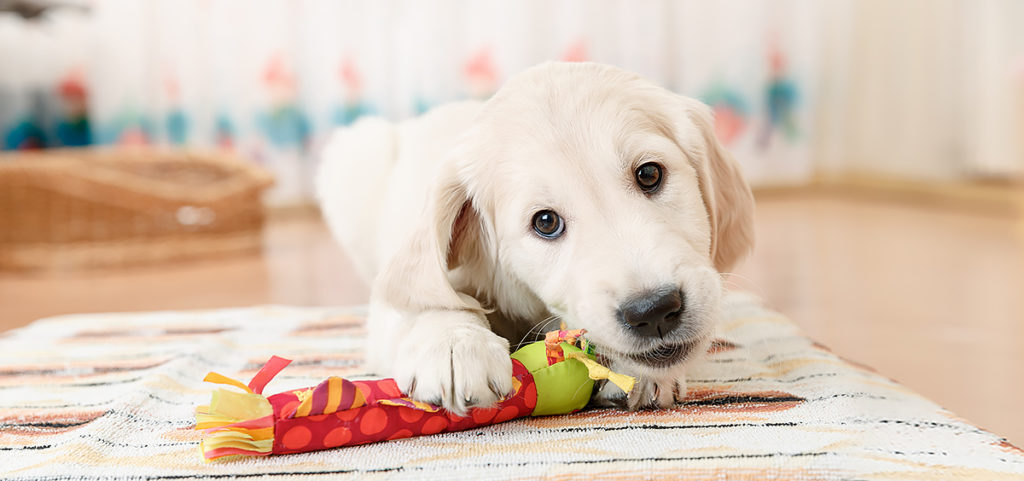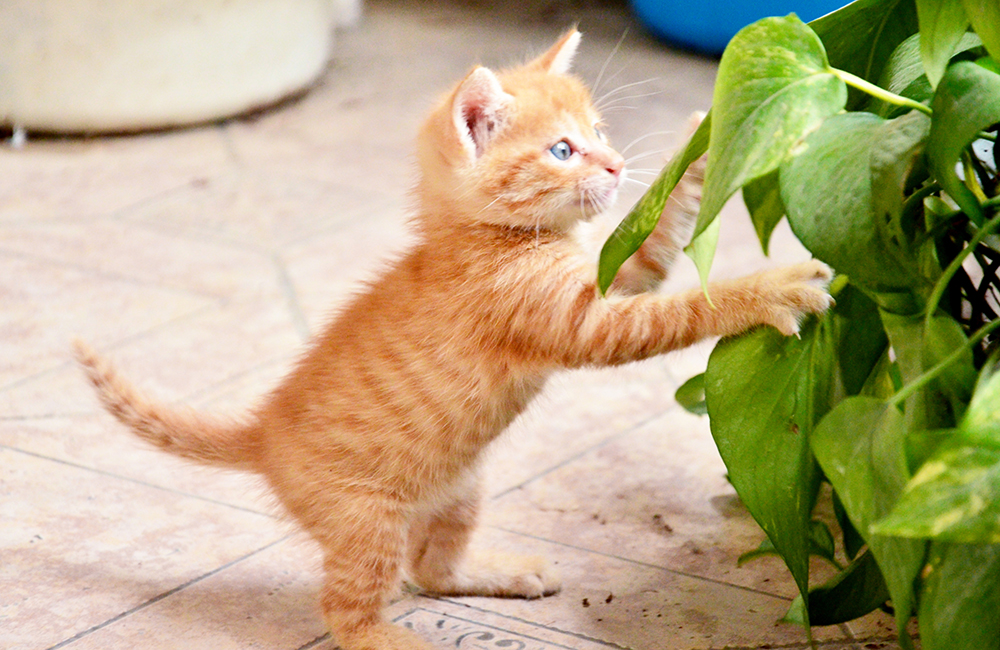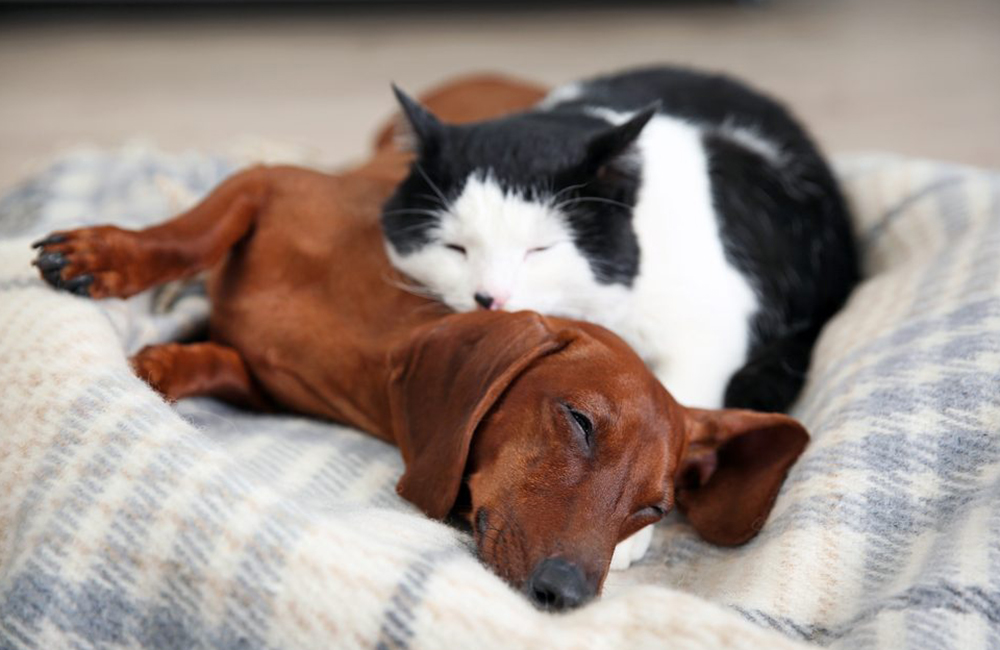Dogs and cats are curious by nature. That’s why it’s so important that you make sure you pet proof your home before bringing a new family member into your house.
Dr. Mark Verdino, Senior Vice President and Chief of Veterinary Staff at North Shore Animal League America, advises taking a “whole-house” approach. “There are potential dangers to your pet in every room, but you can keep them safe with some careful planning.”

Tip #1: Check for Hazards
Your first step, according to Dr. Verdino: Start by getting down on your hands and knees so you can view each room from your pet’s eye level. Of course, most animals can find a way to get into higher places, but surveying their world from ground level might alert you to unseen hazards like candy wrappers, coins, dropped pills and game pieces.
Puppies and kittens love to chew everything in sight, so keep electrical wires, dangling blind cords and all sharp objects out of reach, Dr. Verdino adds.
Tip #2: Avoid Toxic Foods
While most people have heard that chocolate is a no-no for pets (it’s true), other foods to avoid include onions, garlic, grapes, raisins, foods containing Xylitol or Birch Sugar (found in artificial sweeteners, sugar free gum and candies), Macadamia nuts, coffee grounds and alcohol. Cigarettes are also bad for pets (no surprise), and though they’re not likely to smoke them, they could be tempted to eat them.
Tips #3: Lock up Toxic Substances
Many common household products contain chemicals and other toxic substances. As you would for children, lock these materials away from your pets:
- Pesticides
- Antifreeze
- Rat, mouse and insect poisons
- Mothballs
- Fabric softener sheets
- Medications (both prescription and over-the-counter)
- Cosmetics
- Potpourri oils
- Batteries
- Paints, glues and varnishes

Tip #4: Check for Poisonous Plants
Even certain household plants can be hazardous if ingested. Some of the more common ones to avoid:
- Aloe vera
- Boston ivy
- Poinsettia
- Dieffenbachia (dumb cane)
- Peace or Easter lily
- English and German ivy
- India rubber plant
- Mistletoe
- Philodendron
- Chrysanthemum
- Heliotrope
Tip #5: Keep a Medical Kit Handy
Finally, be sure to keep a medical kit handy in case your pets have an accident, and call your vet immediately if you suspect they’ve been injured or exposed to a toxic material.



